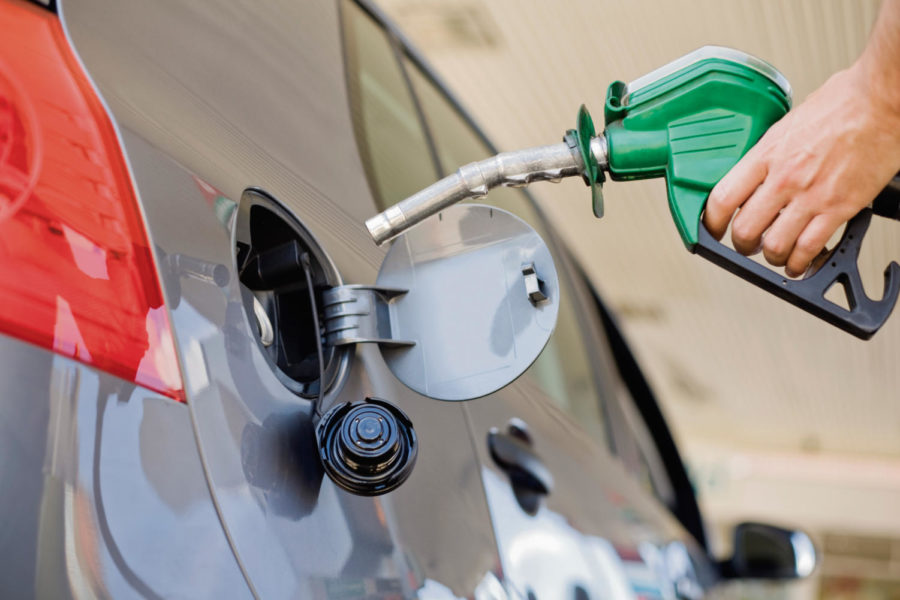Timberlake: Even without reaching 54.5 mpg, fuel economy improvements a good thing
Opinion: Timberlake 9/21
September 21, 2012
Depending on what news you were reading, Aug. 27 might be a strong indicator as to whom you will vote for come November. The opening day of the Republican National Convention, President Barack Obama announced he finalized his plan to raise Corporate Average Fuel Efficiency to 54.5 mpg by 2025.
In the works since 2009, by the end of 2012 automakers are to have an average fleet fuel economy of 28.7 mpg; currently, they all are exceeding that standard at 28.9 mpg. Vehicle gas emissions are estimated to drop 50 percent while reducing fuel consumption by approximately 40 percent by 2025. According to the White House, $1.7 trillion (or as Obama puts it, “that’s trillion, with a ‘t.’”) will be saved by families in gas costs alone and $8,000 through the lifetime of each vehicle. By 2016 the industry is planned to be up to an average of 35.5 mpg.
Obama, alongside all major automaker CEOs, stated in 2011: “This agreement on fuel standards represents the single-most important step we’ve ever taken as a nation to reduce our dependence on foreign oil. … The companies here today have endorsed our plan to continue increasing the mileage on their cars and trucks over the next 15 years. We’ve set an aggressive target, and the companies here are stepping up to the plate.”
Mind you, this was an agreement struck between the Obama Administration and automakers, as Obama put it: “This agreement was arrived at without legislation. You are all demonstrating what can happen when people put aside differences — these folks are competitors, you’ve got labor and business, but they decided, we’re going to work together to achieve something important and lasting for the country.”
A nonprofit organization called Ceres was teamed up with Citi Investment Research to conduct a study to assess the economic implications of such a massive plan. The first thing that was noticed was that “higher standards mean higher profits.” It also found that Obama’s plan would lead to 484,000 new jobs in 49 states.
Walter McManus, research professor at Oakland University, analyzed the data. He found that by 2020, $2.44 billion will be brought into U.S. automakers just because of the increased standards and that all automakers will see an increase of $4.76 billion. He also proclaimed all American automotive industries will then become more competitive internationally, which is important for our need to start selling more goods overseas.
Those who claim the technology is not there are simply misinformed. Mitt Romney’s campaign representative Andrea Saul said: “Gov. Romney opposes the extreme standards that President Obama has imposed, which will limit the choices available to American families. … The president tells voters that his regulations will save them thousands of dollars at the pump but always forgets to mention that the savings will be wiped out by having to pay thousands of dollars more upfront for unproven technology that they may not even want.”
Alan Baum of Baum & Associates (a business that provides research and analysis for the automotive and related industries) says: “There is a whole variety of technology to meet the standard. … And the primary method will be the internal combustion engine. The automakers understand that and they have technology to allow for that.” He stressed that the improvement will not remove any well-selling vehicles from the fleets, including high end sports cars.
Dan Meszler of Meszler engineering says that the cost of the automotive technologies would be outweighed heavily by the savings consumers make at the pump. “The break-even point is about $1.50 a gallon,” he says, according to his calculations. Which, in my opinion, we will never see again. He went on to say, “What [the Corporate Average Fuel Efficiency] does is floats all boats.”
Some might argue, myself included, that a 54.5 mpg average standard is unattainable in 15 years time. But that argument is moot because any standard increase will be beneficial for this economy, all families and the environment.
Not only has Romney stated his disapproval of this plan, but he has stated he will do what he can to reverse it should he become president. The greatest thing you can do to help with this issue is either vote for a reelection of Obama or do what you can to convince Romney of the dangers of reversing the Corporate Average Fuel Efficiency plan.
I am proud to be a part of a university that goes through such great practice in becoming more energy efficient. Supporting not just Obama’s plan but this trend is incredibly important — and after being informed of the facts and numbers, it becomes a no-brainer.







